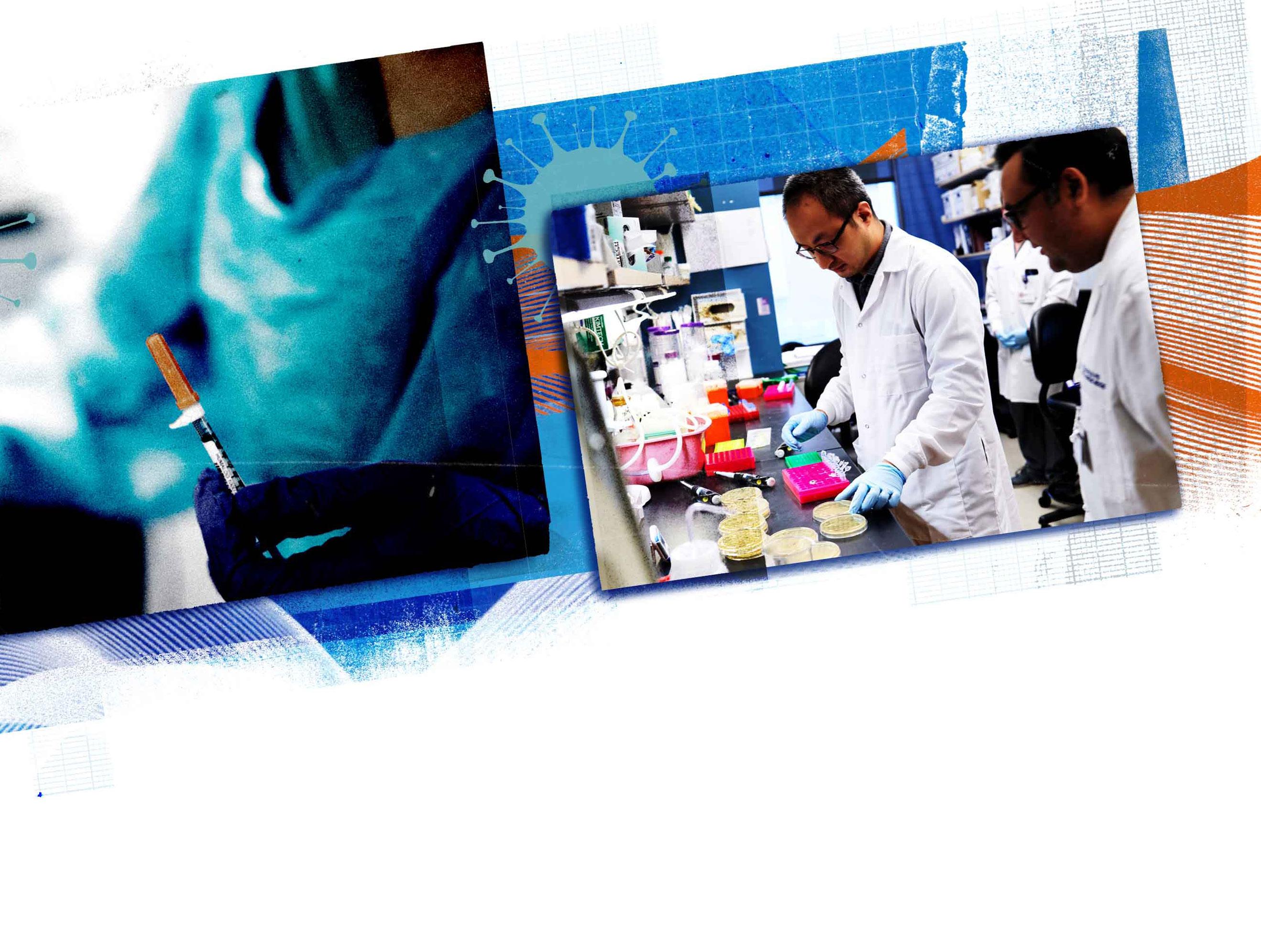
3 minute read
INFECTIOUS DISEASES
INFECTIOUS DISEASES RESEARCH FUNDS I AND II
As a hospital founded over a century ago to serve a city ravaged by the Spanish flu, Houston Methodist was destined to take a leading role in the COVID-19 response. Like the hospital’s early days, philanthropic visionaries played a pivotal role in making it possible for Houston Methodist’s front-line workers to provide lifesaving care.
When the pandemic erupted in March 2020, three longtime Houston Methodist supporters — Ann and John Bookout III, Diane and David Modesett and the Jerold B. Katz Foundation — created a Challenge Initiative to support the Houston Methodist Infectious Diseases Research Fund (IDRF). They offered to match gifts dollar for dollar. Through this act of generosity, physician leaders developed innovative COVID-19 therapies and clinical practices and set the stage for Houston Methodist to lead in the fight against COVID-19 and future disease outbreaks. “In the midst of the chaos, Houston Methodist President and CEO Dr. Marc Boom and his team were methodical and coolheaded,” says David Modesett. “They had a plan in place and were already working on it. Diane and I wanted to find a way to say, ‘You’re doing a great job, and we have confidence in you.’” The challenge goal was reached within two weeks. Spurred by this overwhelming response, the Modesetts, Freeport LNG, and the Ting Tsung and Wei Fong Chao Foundation established a second Challenge Initiative — meeting their goal in even less time than the first Challenge. To date, generous benefactors have given more than $8.3 million to support IDRF. And as board chair of the Houston Methodist Academic Institute, John Bookout III not only contributed but also spearheaded fundraising efforts for IDRF. With the research dollars in place, Houston Methodist’s team conducted multiple clinical trials on COVID-19 therapies. The team rapidly translated their scientific findings into better treatments that benefited patients and impacted the disease response nationwide.
Houston Methodist’s highlights include: • Became the first academic medical center in the nation to receive FDA approval to transfuse donated plasma from a recovered COVID-19 patient into a critically ill patient. • Served as the only site in Houston (and among the first five nation wide) to test the use of the anti viral drug remdesivir on severely ill COVID-19 patients. • Developed new aerosol containment units to help physicians safely perform procedures like intubation and bronchoscopy. • Built the largest COVID-19 genome sequencing operation in the country. Building on IDRF’s momentum, Houston Methodist launched the Infectious Diseases Initiative under the leadership of Dr. James Musser, the Fondren Presidential Distinguished Chair in the Houston Methodist Research Institute and a worldrenowned infectious diseases expert. Through a combination of philanthropic and institutional support, this ambitious multiyear project aims to recruit top talent in the field and model a new modern infectious disease surveillance and rapid response infrastructure.
With advanced disease surveillance, new outbreaks could be detected at an earlier stage, containment protocols implemented, genomic sequencing performed to identify variants, and new therapies rapidly developed and put into clinical trials. The visionaries who launched IDRF set in motion the first phase of innovative research, testing, treatment, data analytics and community engagement that could save countless lives during the next pandemic or even prevent a future infectious disease outbreak.











